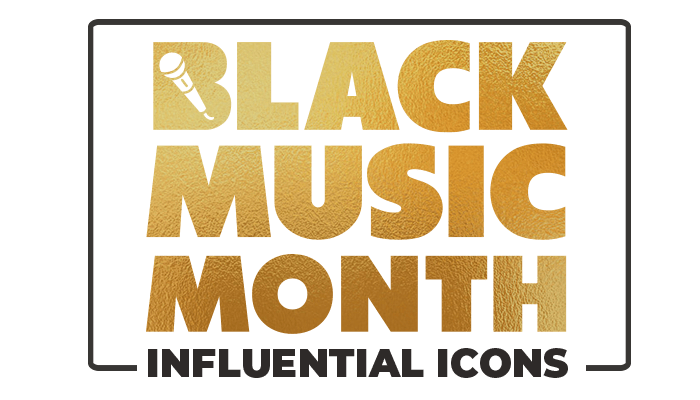We know you love them. Black music movies, that is. Who hasn’t watched the true stories of some of the greatest musicians of all time in one of several musically based Black films, many of which have become beloved parts of the culture?
We see you, Five Heartbeats fans and Purple Rain junkies who’ve seen the movie multiple times. (*raises hand*). We compiled a list of the best of Black music’s movies, whether the movie was great because of a stellar soundtrack, or was just a great movie musical, or both.
SUPERFLY (1972) Technically, Superfly is not a music movie. It’s the story of a Priest, an unlikely named drug dealer who runs Harlem. But Curtis Mayfield’s classic soundtrack for has become as popular if not more than the film it was created for. Superfly’s title track, as well as the songs “Freddie’s Dead” were big hits, selling more than 2 million copies apiece. It remains one of the few movies where the soundtrack made more money than the film did. Superfly and other blaxplotiation films regained popularity in the hip-hop era. Superfly was released on DVD on January 14, 2004, the exact day its star, Ron O’Neal, died.
SPARKLE (1976) Although the 2012 remake would be Whitney Houston’s last film, it’s the 1976 version that most people hold dear. In that version, Sparkle (Irene Cara), Sister (Lonette McKee) and (Dolores) Dwan Smith are three 50’s era Harlem sisters who want to sing, but face all kinds of obstacles in the music business.
One of them is Satin, who Sister, the oldest and wildest of the three siblings, falls in love with. Stix, an aspiring songwriter has eyes for Sparkle and becomes the group’s manager, but predictably, with success comes more problems. When it came out, Sparkle was a box office flop, but grew in stature later on due to VHS and DVD, as well as its amazing soundtrack, sung wholly by Aretha Franklin. It includes the song “Giving Him Something He Can Feel,” which went #1 when remade by En Vogue in 1992.
THE WIZ (1978) An all-Black remake of The Wizard of Oz that was first a Broadway musical, the movie was deemed controversial at the time because an adult Diana Ross starred as Dorothy, a child in the original. With Michael Jackson as The Scarecrow, Richard Pryor as the Wiz, Nipsey Russell as the Tin Man and Lena Horne as Glinda the Good Witch, how could you lose?
Well, at first it did lose, losing over $10 million for Motown Productions and Universal Pictures as it was then the most expensive movie musical ever made. But through TV replays and DVD sales, it became profitable and it’s now among the most beloved Black movie musicals ever made. Though Jackson said it was one of his greatest experiences, it was the last theatrical film Diana Ross ever made.
PURPLE RAIN (1984) The poor showing of The Wiz was at the time considered to be the death knell for Black movies after the blaxploitation era. Yet six years later, along came a short guy from Minneapolis, Minnesota who would use a musical loosely based on his life to become an international superstar.
Surprisingly, although Warner Brothers considered the movie “outrageous” it got made, grossing $80 million dollars and giving Prince a #1 soundtrack, an Oscar and his signature hit. Vanity, Prince’s girlfriend at the time, was initially supposed to star, but they broke up. He replaced her with Apollonia Kotero after Flashdance star Jennifer Beals turned him down to focus on her studies at Yale University. (Good luck trying to find Purple Rain clips on YouTube, but here’s Prince’s Oscar acceptance speech for the movie.)
SCHOOL DAZE (1988) Spike Lee’s second film after his breakthrough She’s Gotta Have It touched on the controversial issue of intra-racial prejudice and colorism in the Black community. Starring Larry Fishburne and Tisha Campbell, both of whom would go on to huge careers, Lee took on the doings of a fraternity and sorority at Mission College, widely believed to be a stand-in for Morehouse, Lee’s alma mater. While it has become viewed as a groundbreaking film at the time of its release, Black colleges and their administrations weren’t too happy with Lee’s depiction of HBCUs. Vanessa Williams, the recently dethroned first Black Miss America, turned down the role of Jane, which was ultimately played by Tisha Campbell.
THE FIVE HEARTBEATS (1991) Director Robert Townsend probably had no idea that this movie, loosely based on the struggles of 60’s male groups, would become one of the most popular Black movies of all time. There are fans that know every line and can probably do the choreography, too. Starring Leon, Michael Wright, Tico Wells, Harry Lennix and Diahann Carroll, the movie was co-written by Keenan Ivory Wayans. The film received mixed reviews with powerhouse critic Roger Ebert becoming one its few critical supporters. The Dells and After 7 hit the Billboard charts with two songs from the film: “A Heart is a House for Love” and “Night Like This,” respectively.
WHAT’S LOVE GOT TO DO WITH IT? (1993) A fictionalized version of Tina Turner’s memoir I, Tina, the movie starring Angela Bassett and Larry Fishbburne was a critical and commercial success. Bassset would receive an Academy Award nomination for the role, losing, many feel, unfairly, to Holly Hunter in The Piano. (It should be noted that as good as Bassett was, Hunter, playing a mute, never spoke a line in the film she won for.) Fishburne, who turned down the movie 5 times, but changed his mind when Bassett was cast, would lose to Tom Hanks in Philadelphia. The film was a huge part of Black pop culture to the point that Ike Turner said that the many scenes fabricated for dramatic purposes damaged his reputation. The infamous “Eat the cake, Anna Mae,” referenced by Jay-Z in his rap on the Beyonce song “Drunk In Love,” didn’t happen the way it was filmed and in fact, Turner’s Buddhist girlfriend, played by Vanessa Bell Armstrong, was a composite of several real-life people.
FIGHTING TEMPTATIONS (2003) Although it generated mixed reviews and did so-so at the box office, The Fighting Temptations is a little gem of a music movie with a positive Christian message, rare at the time in a Black studio supported film. Originally conceived as a starring vehicle for Beyonce, Cuba Gooding, Jr. plays Darrin Hill, a down-on-his -luck ad exec who returns to his Georgia hometown to get his church choir prepared for a gospel competition. Though he’s in it for the money, he eventually falls in love with Lilly, a singer played by Beyonce. The soundtrack includes a mixture of gospel and secular stars including Destiny’s Child, Shirley Caesar, Ann Nesby and the O’Jays and did better than the film although the film was a modest success. Though all of the primary actors signed on for a sequel, it’s doubtful that will ever happen.
RAY (2004) It took director Tyler Hackford 15 years to get the true story of Ray Charles’ life and career made. That worked out well for Jamie Foxx, who starred in the the film and won an Oscar for the role. Ray is the second highest grossing Black musical on this list, earning over $125 million. Reviews were mostly positive and co-star Regina King was singled out for her performance as one of Ray’s paramours from the Raelettes. His long-suffering second wife, Della, was married to him for 22 years. In the movie, she’s played by current Scandal star Kerry Washington.
DREAMGIRLS (2006) The film version of the acclaimed stage play that originated with Sheryl Lee Ralph, Jennifer Holliday and Loretta Devine, the film was expected to be Beyonce’s Oscar bid. Instead the Best Supporting Actress Oscar went to Jennifer Hudson, the American Idol finalist who was the movie’s breakout star. The movie, which included stars Eddie Murphy and Jamie Foxx, was the highest budgeted All-Black film in movie history. It would go on to make $154 million. The film and the play, widely believed to be based on the Supremes rise to stardom at Motown was a critical and commercial success, except with the Motown figures it was purportedly based on. Diana Ross, who didn’t like the Broadway version, claimed to have never seen the movie. Smokey Robinson asked for an apology to Berry Gordy, whom he says was misrepresented by the Curtis Taylor, Jr. character. But Supreme Mary Wilson said she was moved by the movie, saying it was “closer to the truth than they even know.”
Like BlackAmericaWeb.com on Facebook. Follow us on Twitter and Instagram


















